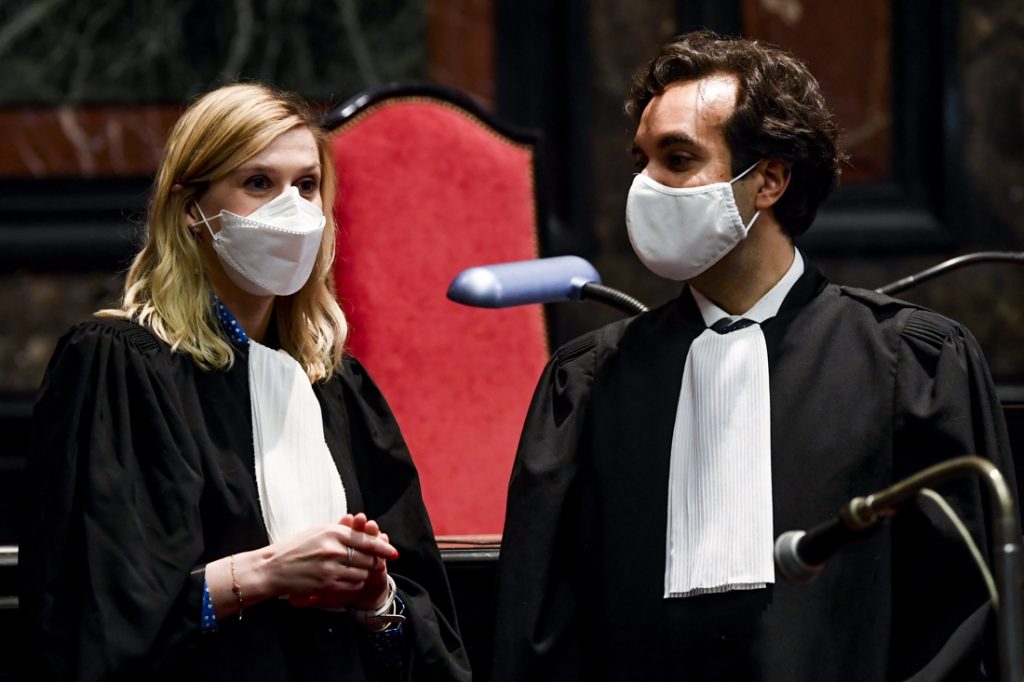€ 10 per dose per day of delay and € 10 million for any other breach of contract found by the court: these penalties are required by the European Commission through its attorneys. By the end of June, it wants AstraZeneca to deliver 120 million doses, by the end of September, that should be 300 million.
Lawyers of the European Commission pleaded today before the French-speaking Court of First Instance in Brussels at AstraZeneca sued. “AstraZeneca made a mistake by not doing everything it could to fulfill its obligations,” the lawyers said. “It has not published all of its available plants.”
Tight delivery schedule and big fine
The company had promised to provide 300 million doses by the end of June, but it would provide only 100 million doses. The European Commission is now requiring pharmaceutical company AstraZeneca to deliver a total of 120 million doses of its vaccines by the end of June, and for a total of 300 million doses to be delivered by the end of September.
In addition, the European Union (EU) wants to charge the company 10 euros per daily dose of vaccine in exchange for delay. Because it does not adhere to the contract. Other obligations that AstraZeneca does not fulfill, such as operating all production facilities, the European Union is hoping to punish 10 million euros.
The advanced purchase agreement is not fulfilled
At the end of August 2020, the European Commission entered into a so-called Advance Purchase Agreement (APA) with AstraZeneca, under which the company committed to providing 300 million doses of its vaccines by the end of June, for a total amount of 870 million. euro.
AstraZeneca faces initial relief measures from the European Union
“The deliveries will be monthly, starting in small numbers but increasing all the time, so that by March 2021 there will be 120 million doses and 300 million doses by the end of June,” said Mr. Rafael Al-Jafriali.
Six months delay
Deliveries were due to start in December 2020, but on September 1, the European Union has already paid 224 million euros to the company. By the end of March, only 30 million doses had been delivered, or 25 percent of what had been promised, and only 100 million doses had been announced by June.
The lawyer said that according to the company’s latest estimate, on May 17th, an additional 100 million doses were scheduled to be delivered by September, and the target of 300 million doses would not be reached until the end of December 2021. “This is six months later than expected,” Professor Jafarali continued.
The “greatest reasonable effort” was not made.
This in and of itself is not evidence that the company got it wrong. But AstraZeneca has entered into something called a best effort commitment. As one of the largest pharmaceutical companies in the world, it had to make “the most reasonable effort” to achieve its goals and it didn’t.
According to the European Commission, the contract stipulated that AstraZeneca can call up six vaccine production plants for the European Union, but the company has only started production for the European Union at two factories.
She added that “vaccine production for the United Kingdom has already started at a third site in July.” Vaccine production for the European Union began at this site only in October. Three other plants were not deployed at any time. In other words, no catch-up attempt was made. However, AstraZeneca repeatedly promised to publish all six plants. In February 2021, it was said that “200 million doses will be delivered by June”, and that they will “invest ten times more”; They will “use almost their full potential.”
The UK’s priority
Meanwhile, three factories have produced 40 million doses for the United Kingdom and 10 million doses for Japan, according to a European Commission attorney.
• The European Union puts the “Venice” on the table against London and AstraZeneca
According to AstraZeneca, the contract had been signed with the UK previously and only guaranteed “fair distribution” of the vaccines. ”But AstraZeneca already knew that it had signed this contract with the UK when it entered into a contract with UNHCR, and that this contract with UNHCR clearly states that the obligations AstraZeneca’s contract with other parties will ensure the appropriate performance of the contract with the Commission.
According to the European Commission, it is clear that AstraZeneca did not act in good faith and did not fulfill its contractual obligations. Therefore, it must now be mandatory to deploy six factories, to deliver 120 million doses by the end of June and 300 million by the end of September.

“Coffee buff. Twitter fanatic. Tv practitioner. Social media advocate. Pop culture ninja.”











More Stories
Telenet Again Loses Tens of Thousands of Customers in Q4 Due to ‘Cord Outage’ – IT Pro – News
Belgian businessman saves Flemish stores from collapsing fashion chain Scotch & Soda
Bosman transfers the company to the Finns.